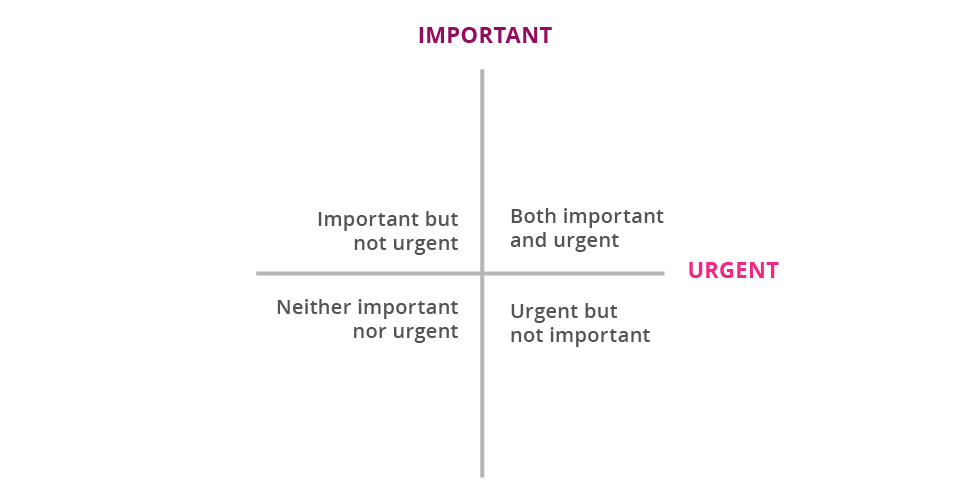How to master time management skills with Covey’s Time Management Grid
The average employee works 8.8 hours every day, but surprisingly little of that time is actually spent doing work. Due to poor time management, people are only productive for a little over 3 hours in a day.1

From catching up on news online to searching for new jobs, employees burn through most of their working days by engaging in activities that could probably wait until they got home. Scattering your attention across multiple important assignments is also not advisable, as you will see an overall dip in effectiveness in all tasks that you are trying to complete.2
In order to better your time management skills and become the productivity powerhouse you were meant to be, consider adopting this 4-step strategy that allows you to plan every day, week, month, and year effectively.
1. Identify your tasks
Create a to-do list every evening and every Sunday. In it, outline exactly what you need to get done in the upcoming period of work.
Whether it’s a few short emails that need to be sent to nurture your business connections or an upcoming deadline on a 6-month behemoth project, write everything down, no matter the size.
It doesn’t have to be high tech either, a simple pen and notepad will do the trick. If you do feel like going digital, use the note function on your phone or something connected to the cloud, such as Google Keep.
2. Prioritise your projects
Now that you have your tasklist in front of you, it’s time to sort them into the four different categories that will best enable you to prioritise them.
Making sure you know which tasks are pressing and which can be pushed out by a few days or weeks will allow you to handle your workload with confidence. To sort your tasks, use the following technique design by Stephen Covey, author of 7 Habits of Highly Effective People.
There are two questions you need to ask yourself about each and every job on your plate:
- Is it important?
- Is it urgent?
This will allow you to sort your tasks into the following four categories of priority:
- Both important and urgent
- Urgent but not important
- Important but not urgent
- Neither important nor urgent

Once you have worked through your to-do list and answered those two questions for each assignment, categorising them into the four groups becomes easy. And, once categorised, your priorities become easier to identify.
3. Schedule your deadlines
Deadlines force you to take your work seriously, and if you’re a person that thrives on pressure you can use the deadline stress to boost your productivity.
Time management expert and author, Craig Jarrow, advises people to set deadlines for earlier than necessary, as projects notoriously grow to fill the time they’re given regardless of how much time they really need.3

To combat missing external deadlines, set yourself earlier internal due dates. And hold yourself to them. Expectations are nothing without accountability.
4. Complete your goals
This may seem obvious to many people, but the power of ticking things off on a to-do list is tremendous.
The feel-good effect you get from completing your tasks is a direct result of a dopamine release in your brain. People want to feel good about themselves and their work, so they actively seek out that feeling, causing them to strive harder for effective time management.4
Own your professional development with these related frameworks for personal growth:
1 Inc.
2 Stanford
4 NY Times


